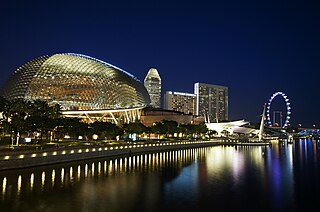 W
WThe culture of Singapore has changed greatly over the millennia. Its contemporary modern culture consists of a combination of Asian and European cultures, mainly by Malay, South Asian, East Asian and Eurasian influences. Singapore has been dubbed as a country where "East meets West", "Gateway to Asia" and a "Garden city".
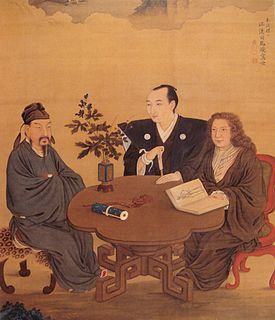 W
WAng mo, or ang moh, is a racial descriptor used to refer to white people that is sometimes seen as a pejorative epithet. It is mainly used in Singapore and Taiwan, and to a lesser extent Malaysia and Thailand. It literally means "red-haired" and originates from Hokkien, a variety of Southern Min. The usage is similar to the Cantonese term gweilo, which is more commonly used in Hong Kong and Macau.
 W
WArt Apart Fair is Singapore's first hotel-based boutique art fair. Initially called Worlds Apart Fair in January 2013, the success of the fair encouraged a second edition, later renamed as Art Apart Fair as part of a series of "Apart Fairs".
 W
W"Disneyland with the Death Penalty" is a 4,500-word article about Singapore written by William Gibson. His first major piece of non-fiction, it was first published as the cover story for Wired magazine's September/October 1993 issue (1.4).
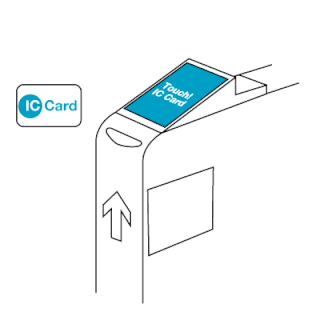 W
WThe EZ-Link card is a rechargeable contactless smart card and electronic money system that is primarily used as a payment method for public transport such as bus and rail lines in Singapore. A standard EZ-Link card is a credit-card-sized stored-value contact-less smart-card that comes in a variety of colours, as well as limited edition designs. It is sold by TransitLink Pte Ltd, a subsidiary of the Land Transport Authority (LTA), and can be used on travel modes across Singapore, including the Mass Rapid Transit (MRT), the Light Rapid Transit (LRT), public buses which are operated by SBS Transit, SMRT Buses, Tower Transit Singapore and Go-Ahead Singapore, as well as the Sentosa Express.
 W
WFour Million Smiles was the theme of an advertising campaign in Singapore by the Singapore 2006 Organising Committee, sponsored by the government of Singapore. The advertising campaign encouraged Singaporeans to smile more in preparation for the 61st Annual Meetings of the International Monetary Fund, World Bank Group and their 16,000 delegates. It was launched by Prime Minister Lee Hsien Loong on 8 July 2006.
 W
WA getai, is a usually boisterous live stage performance held during the Ghost Festival commonly held in Singapore, Malaysia and some parts of Indonesia, in contrast to the generally solemn mood of the festival. However the performance is also routinely played at other Chinese festivals. The stage setup is usually composed of temporary structures and situated in the suburbs of the city in any empty field or even in parking spaces or housing estate.
 W
WHackerspaceSG is a 1,202-square-foot (111.7 m2) technology community center and hackerspace in Singapore. Predominantly an open working space for software projects, HackerspaceSG hosts a range of events from technology classes to biology, computer hardware, and manufacturing and is open to all types of hackers.
 W
WA hawker centre or cooked food centre are a variety of food courts originating from Singapore. Housing many stalls that sell a variety of local and other Asian cuisines, they are typically found throughout the city-state, located near public housing estates or transport hubs.
 W
WA karaoke box is a type of karaoke establishment commonly found in East Asia, Southeast Asia, South Asia, the United States and Canada. It originated in Japan, and is now popular worldwide, particularly in Asia. Karaoke boxes consist of multiple rooms containing karaoke equipment, usually rented out for a period of time. A typical karaoke box establishment contains 10–20 such rooms, that can be themed so that each room has a different feeling or can be a traditional karaoke box, as well as have a main karaoke bar area in the front. Karaoke box establishments often sell beverages, and sometimes food but sometimes the establishment offers free refreshments. Many people of all ages enjoy karaoke as a pastime in Japan, as it still has a huge influence in the Japanese music scene and it is also a place that can attract tourists as well. One blogger, who is a fan of karaoke, writes "...to sing karaoke is to embrace the moment that your love of song transcends your love of self." While people do go to and enjoy karaoke boxes with family and friends, people also go by themselves and are able to enjoy the comfort of performing in the room by themselves. There is also a different style of karaoke, the traditional type where the patrons sing in front of everyone that is also still offered in popular entertainment areas, rather than the private boxes.
 W
WThe practice of Karang guni is common in Singapore. Its practitioners are a modern form of rag and bone men that visit residences door-to-door. They can either walk along corridors or for certain HDB estates where the carpark is right under the HDB blocks, walk through the carpark downstairs honking a horn. However, around landed properties, they may drive around in a lorry with a horn attached to it, instead of going door-to-door. They make visits in carts, collecting old newspapers and other unwanted items. These will be resold at specialized markets and eventually recycled or reused. "Karang guni" is a Malay phrase for gunny sack, which was used in the past to hold the newspapers. The Karang guni men would haul the heavy sacks on their backs as they walked their rounds to do the collection. Today, most of them use a hand truck instead.
 W
W"Little red dot" is a nickname often used in the media, and in casual conversation, as a reference to Singapore. It refers to how the nation is depicted on many maps of the world and of Asia as a red dot. The city-state comprising the main island and all its islets – a total land area of no more than 718.3 square kilometres – is much smaller than its Southeast Asian neighbours.
 W
WThe Singaporean Mahjong scoring rules are similar to that of the Chinese Old style / Hong Kong system, but accounts for the different set of tiles used.
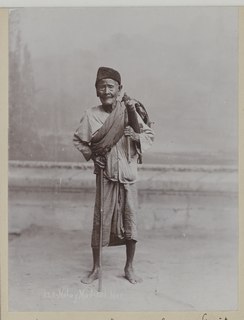 W
WMalay folklore refers to a series of knowledge, traditions and taboos that have been passed down through many generations in oral, written and symbolic forms among the indigenous populations of Maritime Southeast Asia (Nusantara). They include among others, themes and subject matter related to the indigenous knowledge of the ethnic Malays and related ethnic groups within the region.
 W
WMeet-the-People Sessions is a series of one-to-one meetings between elected members of parliament and their constituents in Singapore. The sessions are usually held once a week at a local constituency office staffed by partisan volunteers. Constituents visit their representative in the hope of resolving their various problems encountered in daily living. The MP will write petition letters to the relevant ministry, statutory board or any concerned parties to appeal on behalf of the resident. These letters are usually accorded a higher priority by the civil service as they come from elected Members of Parliament, regardless even from elected Opposition MPs as the Singapore Civil Service is ought to accord MPs equally and democratic as based and sworn by the Singapore National Pledge.
 W
WNo U-Turn Syndrome (NUTS) is a term first coined by Singaporean entrepreneur Sim Wong Hoo to prominently describe the social behaviour of Singaporeans having a mindset of compliance to higher authorities before proceeding with any action. He makes a comparison of traffic rules in Singapore to those found overseas, to describe the phenomenon. In Singapore, drivers are not allowed to make a U-turn unless a sign specifically allows them to do so, while in some other countries drivers may make U-turns freely so long as a "No U-turn" sign is not present. Following that, this analogy is used to explain the red tape he has encountered with hard-nosed bureaucrats, which in turn stifles the very creativity that the Singaporean government has been trying to promote in the recent years.
 W
WPasar malam is an Indonesian and Malay word that literally means "night market". A pasar malam is a street market in Indonesia, Malaysia, Brunei and Singapore that opens in the evening, usually in residential neighbourhoods.
 W
WPasar pagi is a type of traditional market found in Indonesia and Malaysia, sometimes classified as a wet market.
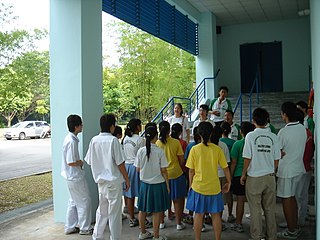 W
WThe Provisional Admission Exercise (PAE), colloquially known as the first three months among Singapore students, refers to the interim exercise/period in which graduating Secondary 4 students in Singapore could choose to join a junior college or centralised institute for Term 1 in the following academic year, before the official release of the GCE 'O' level results. Students used the score of their respective secondary schools' internal preliminary examinations to apply under the programme.
 W
WIn Chinese and other East and Southeast Asian societies, a red envelope, red packet or red pocket is a monetary gift which is given during holidays or special occasions such as weddings, graduation or the birth of a baby.
 W
WSilat Melayu, also known as Seni Persilatan Melayu or simply Silat, is a combative art of self-defence from the Malay world, that employs langkah ('steps') and jurus ('movements') to ward off or to strike assaults, either with or without weapons. Silat traced its origin to the early days of Malay civilisation, and has since developed into a fine tradition of physical and spiritual training that embodies aspects of traditional Malay attire, performing art and adat. The philosophical foundation of modern Malay Silat is largely based on the Islamic spirituality. Its moves and shapes are rooted from the basis of Silat movements called Bunga Silat, and Silat performances are normally accompanied with Malay drum assembles.
 W
WSinga The Courtesy Lion was a mascot used for various public education campaigns in Singapore. It was created to educate the public on courtesy, graciousness andlic education campaign featuring Singa the Lion was launched in 1982 under the National Courtesy Campaign with the slogan, "Courtesy is part of our tradition, it's so nice to be courteous."
 W
WThe Singapore Kindness Movement is a non-government, non-profit organisation, a registered charity and an Institution of Public Character that executes public education programs aimed at cultivating kindness and graciousness in Singaporean society. It was officially launched in 1997. The movement serves as the successor to the Singapore Courtesy Council that oversaw the National Courtesy Campaign (Singapore) from the 1980s through the 1990s.
 W
WToto is a legalized form of lottery sold in Singapore, known by different names elsewhere. It is held by Singapore Pools, the only legal lottery operator in Singapore. As of April 2015, it was the second most popular type of gambling activity after 4-Digits. Toto can be purchased from any of the Singapore Pools outlets across Singapore. Draws are conducted every Monday and Thursday at 18h30 or 6:30pm. In case of the cascade draw, the draw time will change to 9.30pm. The "live" Toto draw can be viewed at the Singapore Pools Main Branch at 210 Middle Road. The profits from Toto go to the Singapore Totaliser Board which uses the money for charity and other worthy causes.
 W
WA void deck is an open space found on the ground floor of HDB blocks in Singapore. It is used for community activities.
 W
WThe Workplace Safety and Health (WSH) Council was formed on 1 April 2008. It is an industry-led Statutory Body that is based in Singapore. It is a step-up from its precursor, the Workplace Safety and Health Advisory Committee (WSHAC) formed in September 2005. The WSHC is endowed with statutory powers.